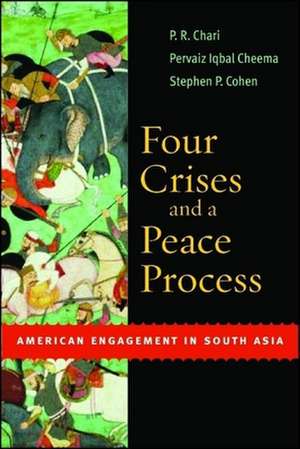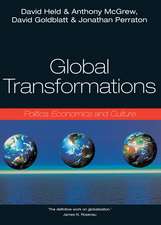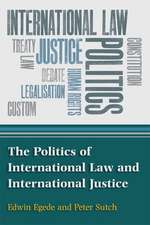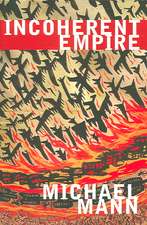Four Crises and a Peace Process: American Engagement in South Asia
Autor P.R. Chari, Pervaiz Iqbal Cheema, Stephen P. Cohenen Limba Engleză Paperback – 26 noi 2007
India and Pakistan, nuclear neighbors and rivals, fought the last of three major wars in 1971. Far from peaceful, however, the period since then has been "one long crisis, punctuated by periods of peace." The long-disputed Kashmir issue continues to be both a cause and consequence of India-Pakistan hostility. Four Crises and a Peace Process focuses on four contained conflicts on the subcontinent: the Brasstacks Crisis of 1986–1987, the Compound Crisis of 1990, the Kargil Conflict of 1999, and the Border Confrontation of 2001–2002. Authors P.R. Chari, Pervaiz Iqbal Cheema, and Brookings senior fellow Stephen P. Cohen explain the underlying causes of these crises, their consequences, the lessons that can be learned, and the American role in each. The four crises are notable because any one of them could have escalated to a large-scale conflict, or even all-out war, and three took place after India and Pakistan had gone nuclear. Looking for larger trends of peace and conflict in the region, the authors consider these incidents as cases of attempted conflict resolution, as instances of limited war by nuclear-armed nations, and as examples of intervention and engagement by the United States and China. They analyze the reactions of Indian, Pakistani, and international media and assess the two countries' decision-making processes. Fo ur Crises and a Peace Process explains how these crises have affected regional and international policy and evaluates the prospects for lasting peace in South Asia.
Preț: 244.53 lei
Nou
Puncte Express: 367
Preț estimativ în valută:
46.80€ • 50.81$ • 39.31£
46.80€ • 50.81$ • 39.31£
Carte tipărită la comandă
Livrare economică 23 aprilie-07 mai
Preluare comenzi: 021 569.72.76
Specificații
ISBN-13: 9780815713838
ISBN-10: 0815713835
Pagini: 252
Dimensiuni: 152 x 229 x 19 mm
Greutate: 0.37 kg
Editura: Brookings Institution Press
Colecția Brookings Institution Press
ISBN-10: 0815713835
Pagini: 252
Dimensiuni: 152 x 229 x 19 mm
Greutate: 0.37 kg
Editura: Brookings Institution Press
Colecția Brookings Institution Press
Notă biografică
P.R. Chari is research professor at the Institute of Peace and Conflict Studies in New Delhi. His books include Security and Governance in South Asia (Manohar, 2001). Pervaiz Iqbal Cheema is president of the Islamabad Policy Research Institute. His publications include The Armed Forces of Pakistan (Allen and Unwin, 2002). Stephen P. Cohen is senior fellow in Foreign Policy Studies at the Brookings Institution. His previous books include The Idea of Pakistan (Brookings, 2004) and India: Emerging Power (Brookings, 2001), and The Indian Army: Its Contribution to the Development of a Nation (Oxford University Press, 2001).
Descriere
India and Pakistan, nuclear neighbors and rivals, fought the last of three major wars in 1971. Far from peaceful, however, the period since then has been "one long crisis, punctuated by periods of peace." The long-disputed Kashmir issue continues to be both a cause and consequence of India-Pakistan hostility. Four Crises and a Peace Process focuses on four contained conflicts on the subcontinent: the Brasstacks Crisis of 1986–1987, the Compound Crisis of 1990, the Kargil Conflict of 1999, and the Border Confrontation of 2001–2002. Authors P.R. Chari, Pervaiz Iqbal Cheema, and Brookings senior fellow Stephen P. Cohen explain the underlying causes of these crises, their consequences, the lessons that can be learned, and the American role in each. The four crises are notable because any one of them could have escalated to a large-scale conflict, or even all-out war, and three took place after India and Pakistan had gone nuclear. Looking for larger trends of peace and conflict in the region, the authors consider these incidents as cases of attempted conflict resolution, as instances of limited war by nuclear-armed nations, and as examples of intervention and engagement by the United States and China. They analyze the reactions of Indian, Pakistani, and international media and assess the two countries' decision-making processes. Fo ur Crises and a Peace Process explains how these crises have affected regional and international policy and evaluates the prospects for lasting peace in South Asia.















